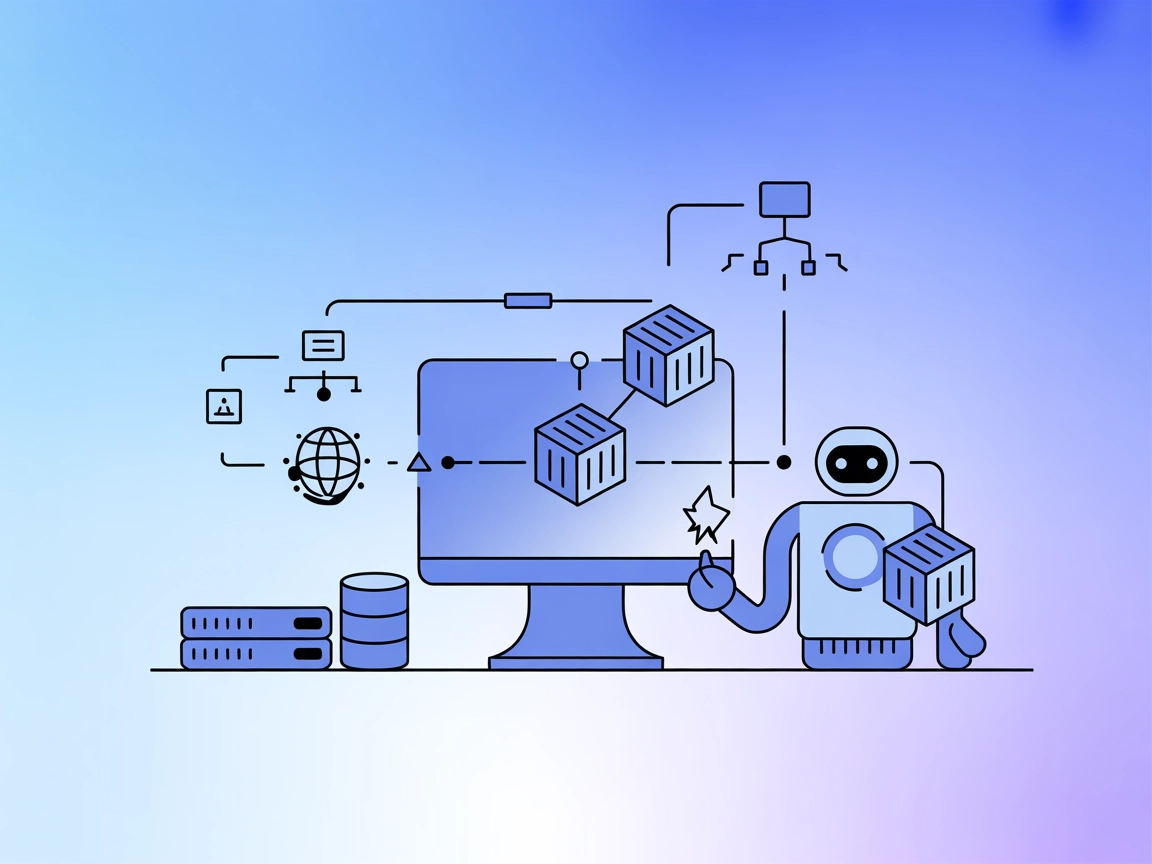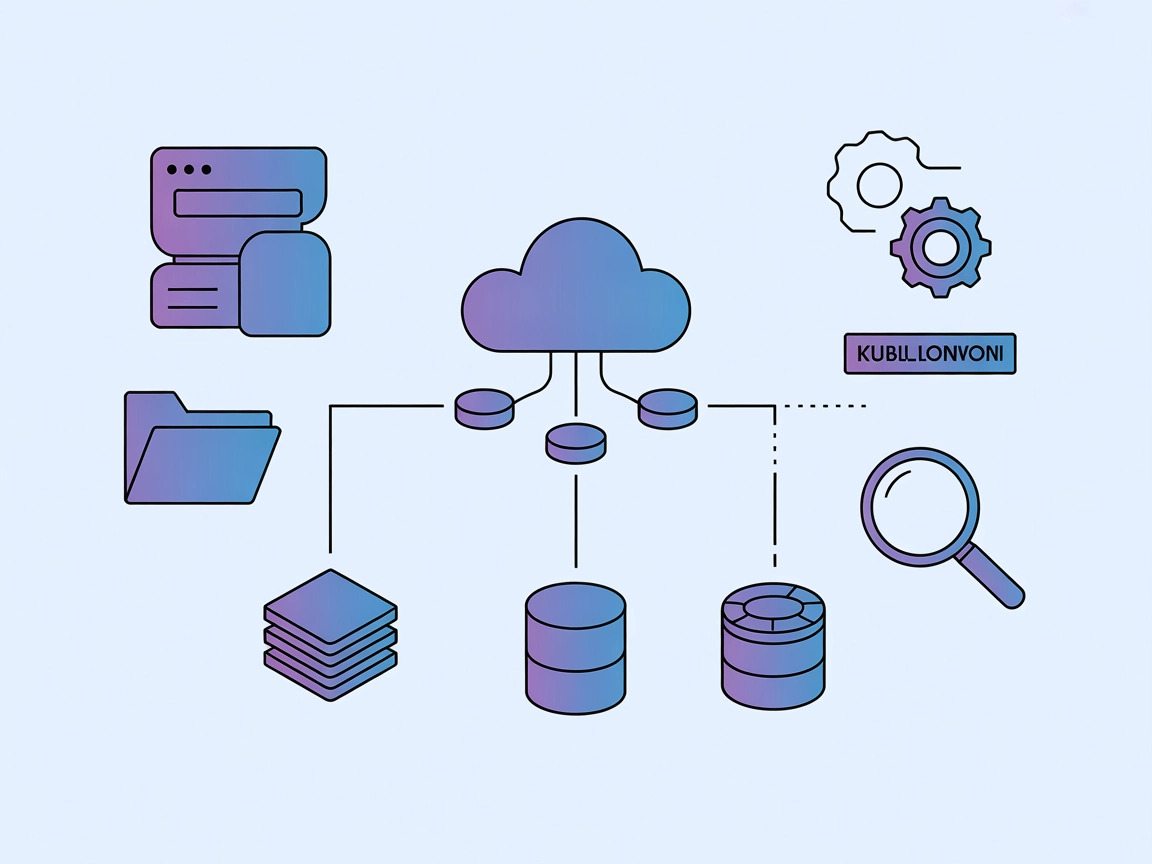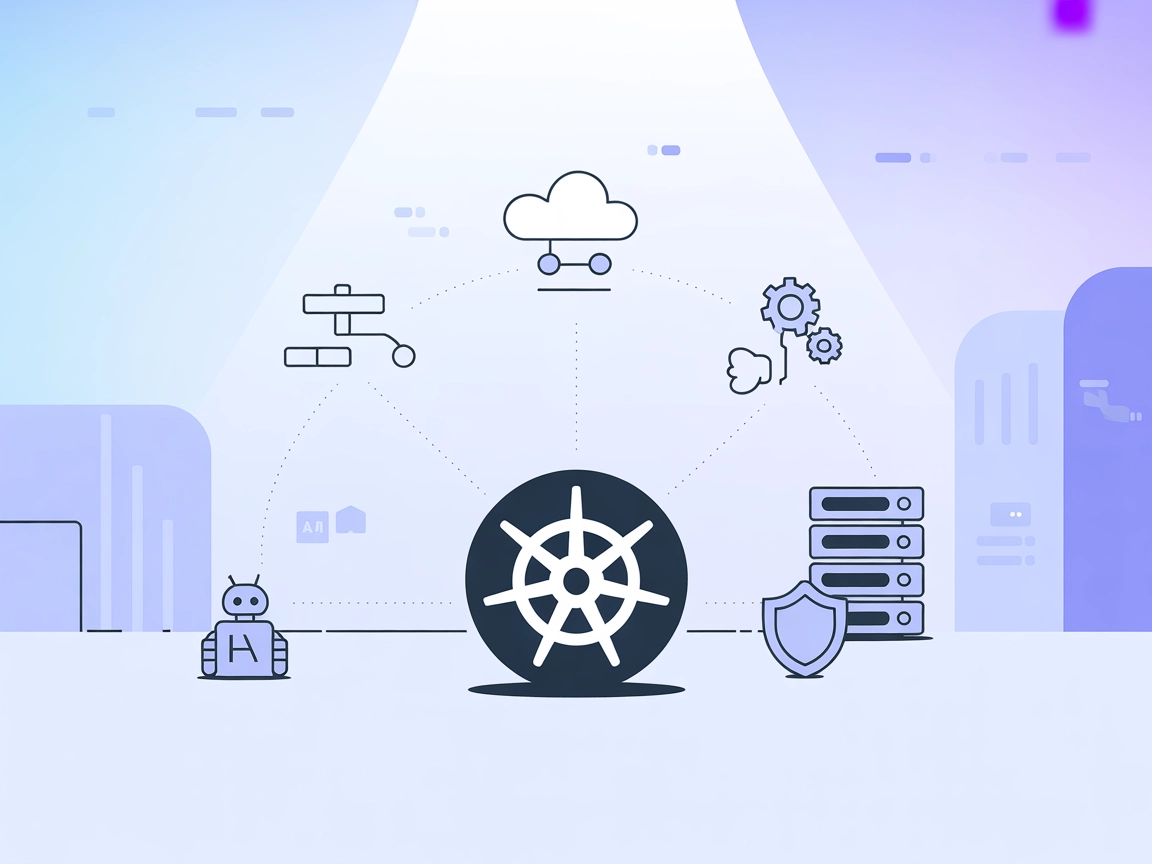
mcp-server-docker MCP Server
The mcp-server-docker MCP Server enables AI assistants to manage Docker containers through natural language. Integrate this MCP with FlowHunt and other clients ...

Enable automated and AI-assisted container lifecycle and image management by connecting Containerd to FlowHunt and other MCP-compatible agents with the MCP Containerd server.
FlowHunt provides an additional security layer between your internal systems and AI tools, giving you granular control over which tools are accessible from your MCP servers. MCP servers hosted in our infrastructure can be seamlessly integrated with FlowHunt's chatbot as well as popular AI platforms like ChatGPT, Claude, and various AI editors.
The MCP Containerd server is an implementation of the Model Context Protocol (MCP) designed to interface directly with Containerd’s CRI (Container Runtime Interface) using the Rust RMCP library. It allows AI assistants and clients to manage container workloads programmatically, enabling actions such as creating, starting, stopping, and deleting containers or pods, as well as interacting with container images. By exposing Containerd’s runtime and image services via standardized MCP endpoints, MCP Containerd empowers AI-driven workflows to automate container lifecycle management, perform image operations, and query status—all while integrating seamlessly with LLMs and AI agents. This enhances development and operations workflows by making complex container management accessible through structured, automated, and AI-assisted interactions.
No prompt templates are mentioned in the repository.
No explicit MCP resources are described in the repository.
cargo build --releasecargo run --release"mcpServers": {
"containerd-mcp": {
"command": "cargo",
"args": ["run", "--release"]
}
}
cargo build --release"mcpServers": {
"containerd-mcp": {
"command": "cargo",
"args": ["run", "--release"]
}
}
cargo build --releasecargo run --release"mcpServers": {
"containerd-mcp": {
"command": "cargo",
"args": ["run", "--release"]
}
}
"mcpServers": {
"containerd-mcp": {
"command": "cargo",
"args": ["run", "--release"]
}
}
If your setup requires secrets (e.g., for future authentication), use environment variables:
"mcpServers": {
"containerd-mcp": {
"command": "cargo",
"args": ["run", "--release"],
"env": {
"CONTAINERD_API_KEY": "${CONTAINERD_API_KEY}"
},
"inputs": {
"api_key": "${CONTAINERD_API_KEY}"
}
}
}
Using MCP in FlowHunt
To integrate MCP servers into your FlowHunt workflow, start by adding the MCP component to your flow and connecting it to your AI agent:

Click on the MCP component to open the configuration panel. In the system MCP configuration section, insert your MCP server details using this JSON format:
{
"containerd-mcp": {
"transport": "streamable_http",
"url": "https://yourmcpserver.example/pathtothemcp/url"
}
}
Once configured, the AI agent is now able to use this MCP as a tool with access to all its functions and capabilities. Remember to change “containerd-mcp” to whatever the actual name of your MCP server is and replace the URL with your own MCP server URL.
| Section | Availability | Details/Notes |
|---|---|---|
| Overview | ✅ | Explains containerd management via MCP/RMCP |
| List of Prompts | ⛔ | No prompt templates found |
| List of Resources | ⛔ | No explicit resources listed |
| List of Tools | ✅ | version, runtime, image services covering container lifecycle and image ops |
| Securing API Keys | ✅ | Example provided for env variable usage |
| Sampling Support (less important in evaluation) | ⛔ | Not mentioned |
Short evaluation:
MCP Containerd offers a clear bridge between Containerd and MCP, with robust tool coverage for container/image management. However, the absence of prompt templates and explicit resources reduces its out-of-the-box flexibility. It’s well-suited for DevOps automation and AI-driven workflows, but documentation and resource support could be improved.
| Has a LICENSE | Apache-2.0 |
|---|---|
| Has at least one tool | Yes |
| Number of Forks | 3 |
| Number of Stars | 34 |
Overall rating: 6/10. The MCP Containerd server provides strong core functionality for container management via MCP, but lacks prompt templates, explicit resource definitions, and comprehensive configuration documentation that would make it easier to adopt and extend.
MCP Containerd is an MCP server that connects directly to Containerd’s CRI, exposing container and image operations as standardized MCP endpoints. This enables programmatic management of containers, pods, and images by AI agents and workflows.
It supports creating, starting, stopping, and deleting containers and pods; pulling, listing, and deleting images; executing commands inside containers; and querying container/pod status.
Use environment variables in your MCP configuration to securely inject secrets such as API keys. For example, set 'CONTAINERD_API_KEY' as an environment variable and reference it in your server's config.
Yes. Add the MCP server to your FlowHunt flow and configure the MCP component with your server details. This enables your AI agents to leverage all container and image operations exposed by MCP Containerd.
No prompt templates or explicit MCP resources are included in this server. It focuses on tool endpoints for direct container and image management.
Automated container lifecycle management, CI/CD image management, real-time status querying, remote debugging, and orchestration in AI-driven DevOps workflows.
Streamline your DevOps and AI workflows by integrating MCP Containerd with FlowHunt for seamless container and image operations.

The mcp-server-docker MCP Server enables AI assistants to manage Docker containers through natural language. Integrate this MCP with FlowHunt and other clients ...

The Kubernetes MCP Server bridges AI assistants and Kubernetes/OpenShift clusters, enabling programmatic resource management, pod operations, and DevOps automat...

The Kubernetes MCP Server bridges AI assistants and Kubernetes clusters, enabling AI-driven automation, resource management, and DevOps workflows through standa...
Cookie Consent
We use cookies to enhance your browsing experience and analyze our traffic. See our privacy policy.